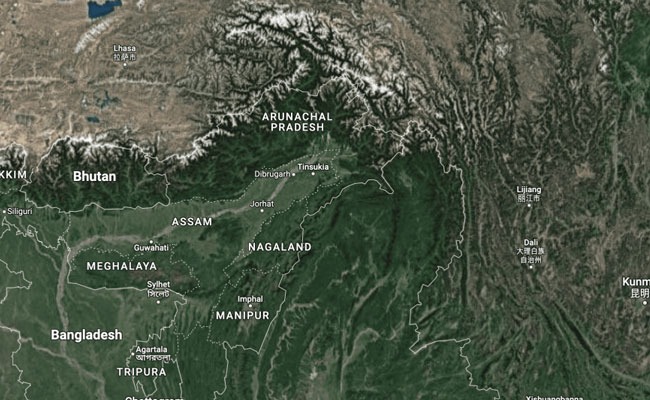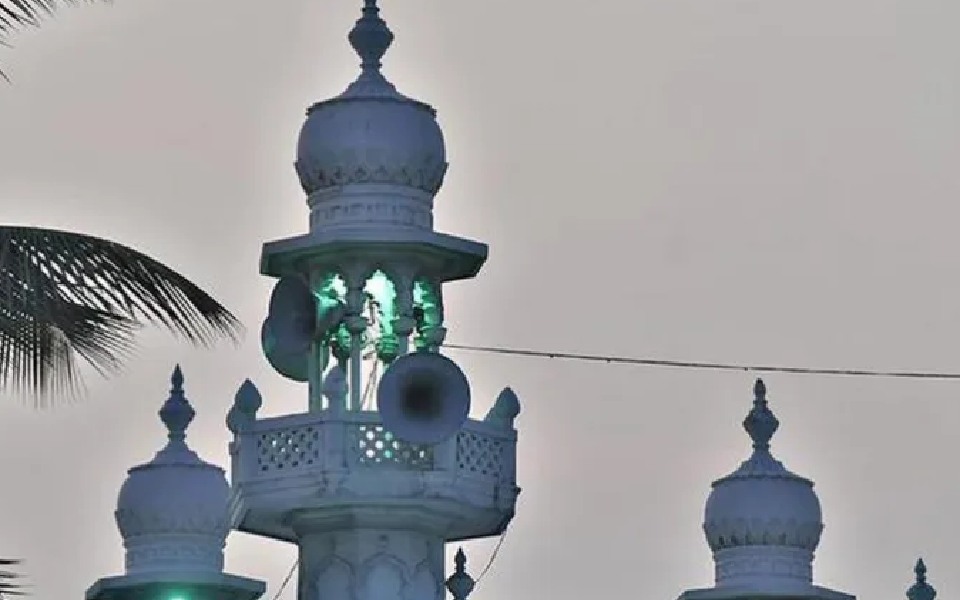Beijing (PTI): China has released a third set of names in Chinese, Tibetan and pinyin characters for Arunachal Pradesh, as part of its efforts to reemphasise its claim over the Indian state.
China's Ministry of Civil Affairs on Sunday released the standardised names of 11 places for Arunachal Pradesh, which it calls "Zangnan, the southern part of Tibet" in accordance with regulations on geographical names issued by the State Council, China's cabinet.
The official names of the 11 places were released on Sunday by the ministry, which also gave precise coordinates, including two land areas, two residential areas, five mountain peaks and two rivers and listed the category of places' names and their subordinate administrative districts, state-run Global Times reported on Monday.
This is the third batch of standardised geographical names for Arunachal Pradesh issued by China's civil affairs ministry. The first batch of the standardised names of six places in Arunachal was released in 2017, and the second batch of 15 places was issued in 2021.
India has previously dismissed the Chinese move of renaming some places in Arunachal Pradesh, asserting that the state has "always been" and will "always be" an integral part of India and that assigning "invented" names does not alter this fact.
"This is not the first time China has attempted such a renaming of places in the state of Arunachal Pradesh," External Affairs Ministry spokesperson Arindam Bagchi said in December 2021.
"Arunachal Pradesh has always been, and will always be an integral part of India. Assigning invented names to places in Arunachal Pradesh does not alter this fact," he had said.
The Global Times, which is part of the ruling Communist Party's mouthpiece People's Daily group of publications, quoted Chinese experts as saying that the announcement of names is a legitimate move and China's sovereign right to standardise the geographical names.
The first set of names was announced by China in 2017 days after the Dalai Lama's visit to Arunachal Pradesh. China was sharply critical of the Tibetan spiritual leader's visit.
The Dalai Lama fled from Tibet through Tawang in Arunachal Pradesh and sought refuge in India in 1959 after China took military control of the Himalayan region in 1950.
Let the Truth be known. If you read VB and like VB, please be a VB Supporter and Help us deliver the Truth to one and all.
Prayagraj, Jan 24 (PTI): The Allahabad High Court on Wednesday dismissed a writ petition seeking direction to the state authorities to permit the mounting of loudspeakers on a Masjid.
The court observed that the religious places were for offering prayers, therefore the use of loudspeakers was not a matter of right.
Dismissing the writ petition filed by Pilibhit-resident Mukhtiyar Ahmad, a two judge-bench, comprising Justice Ashwani Kumar Mishra and Justice Donadi Ramesh, observed, "Religious places are for offering prayers to the divinity and use of loudspeakers cannot be claimed as a matter of right, particularly when often such use of loudspeakers create nuisance for the residents".
At the outset, the state counsel objected to the maintainability of the writ on the grounds that the petitioner was neither a mutawalli, nor did the mosque belong to him.
The court also noted that the petitioner did not have locus to file the writ petition.
The term 'locus' is a legal concept that refers to the right of a person or entity to participate in a legal proceeding or bring a lawsuit.





